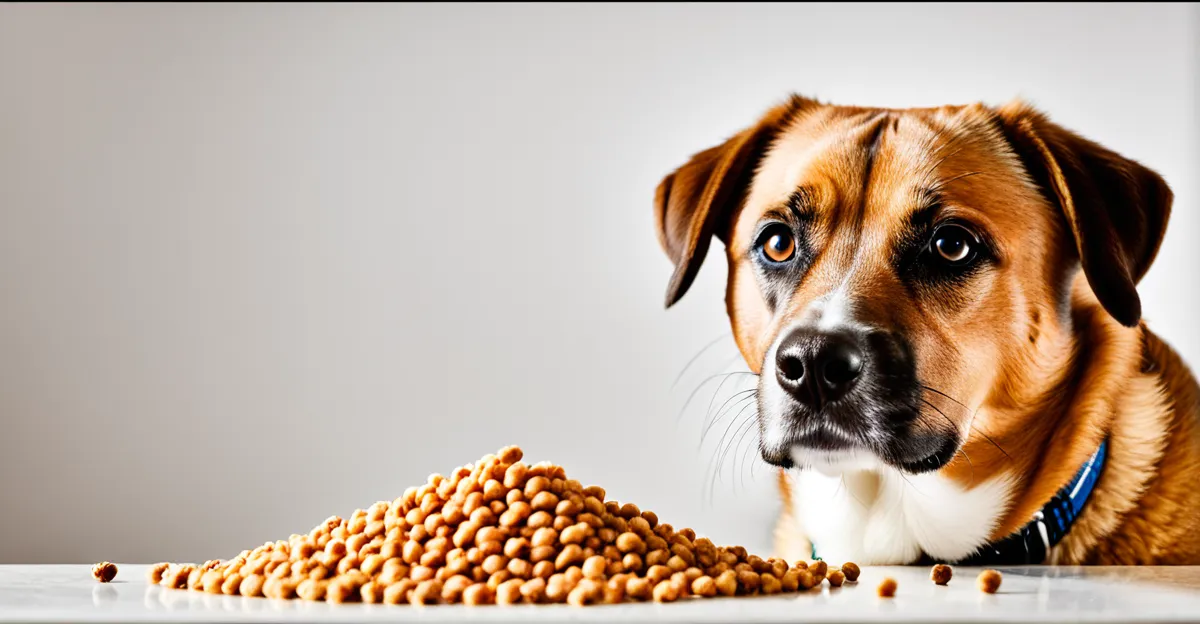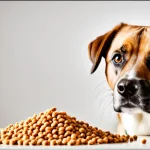Overview of New Dietary Trends Among UK Pets
In recent years, pet food trends in the UK have evolved significantly, reflecting shifting owner preferences and growing awareness of pet health. Among the most notable emerging pet diets are plant-based, raw, and grain-free options. Plant-based diets, once considered niche, are gaining traction as more owners seek sustainable and ethical choices. Meanwhile, raw diets appeal due to perceptions of mimicking natural feeding behaviors. Grain-free options, initially embraced to address allergies, remain popular despite mixed evidence on their necessity.
The UK pet nutrition landscape has witnessed rapid growth and transformation. Market data reveal a steady increase in the adoption rates of these newer diets, with plant-based pet foods growing by double digits annually in recent reports. This shift is fueled by an expanding market size, as manufacturers introduce a wider variety of formulations that cater to specific health concerns or owner values. Such dietary innovations are reshaping what pet owners consider standard nutrition, a trend confirmed by comprehensive UK pet nutrition analysis studies.
In parallel : How can I prepare my pet for travel within the UK?
This growth corresponds with broader societal trends towards health-conscious living and sustainability, influencing how pet owners choose diets for their animals. The rising variety and availability of new pet foods support a more personalized approach to pet health, marking a significant departure from traditional meat-based kibble staples. By examining these data, it becomes clear that maintaining a pulse on pet food trends in the UK is essential to understanding this dynamic market and its implications for pet wellbeing.
Key Drivers Behind Dietary Changes in UK Pets
Understanding the reasons for new pet diets UK requires examining several intertwined factors shaping owner choices. One major pet owner motivation is concern for pet health outcomes. Many owners seek diets that address allergies, digestive issues, or obesity, driving interest in emerging pet diets like grain-free or raw formulations. These diets are often perceived to offer better nutrient profiles or mimic natural feeding, which appeals to health-conscious consumers.
Also to discover : What Are the Best Ways to Entertain Your Pets on a Rainy Day in the UK?
Environmental sustainability has become a significant driver in the UK pet food market. A growing number of owners prioritize eco-friendly options, favoring plant-based or ethically sourced ingredients. This reflects wider cultural shifts towards reducing carbon footprints and animal welfare concerns. Such ethical considerations influence how owners select food, embedding values beyond simple nutrition into pet care decisions.
Additionally, lifestyle factors and personal beliefs strongly impact dietary choices. Owners embracing veganism or vegetarianism may opt for plant-based pet diets as an extension of their own habits, while others influenced by fitness or holistic wellness trends apply similar principles to their pets’ nutrition. These drivers collectively account for the growing diversity in pet food options captured in recent UK pet nutrition analysis.
In summary, the changing landscape of pet diets in the UK is propelled by health priorities, sustainability awareness, and alignment with owner lifestyles. Recognizing these core motivations helps explain the rise in alternative diet popularity and highlights shifting expectations in pet care.
Expert Insights and Veterinary Perspectives
Veterinarians in the UK play a crucial role in guiding pet owners through the evolving landscape of emerging pet diets. Their expert opinions UK often emphasize the importance of balanced nutrition and caution against unverified trends. For instance, while some vets support plant-based diets under strict supplementation, many remain skeptical of raw diets due to risks of bacterial contamination and nutrient imbalance.
Veterinary advice pet diets frequently includes warnings about potential deficiencies in homemade or novel diets. Vets stress the necessity of consulting professionals before switching to grain-free or exclusively raw options, as improper diets can lead to serious health issues like pancreatitis or vitamin deficiencies. Such guidance emerges from a growing body of research assessing the UK pet nutrition analysis that highlights safety and efficacy concerns.
Recent professional guidance also underscores the variability in pet responses to alternative diets. Some studies advocate for tailored approaches that consider the animal’s specific health needs rather than broad adoption of trends. UK veterinarians often recommend routine monitoring when implementing new diets, reinforcing their role as trusted advisors amid expanding pet food trends UK.
In summary, veterinary perspectives balance open-mindedness toward innovation with a firm commitment to evidence-based recommendations. This approach ensures pet owners in the UK receive support in navigating the benefits and risks of modern dietary shifts effectively.
Benefits and Risks of Emerging Pet Diets
Emerging pet diets in the UK offer a range of pet diet benefits and risks that owners should carefully weigh. Many pet owners report notable UK pet health effects such as improved digestion, healthier coat condition, and reduced allergy symptoms when switching to diets like grain-free or plant-based formulas. These advantages often stem from avoiding common allergens or additives found in traditional kibble, aligning with findings from recent UK pet nutrition analysis.
However, there are also significant disadvantages of new diets to consider. Nutritional deficiencies remain a notable risk, particularly in raw or homemade plant-based diets, where balancing all essential nutrients can be challenging. For instance, deficiencies in taurine, vitamin B12, or calcium have been documented, potentially leading to serious health problems like cardiac or bone disorders. These concerns underscore the importance of veterinary guidance when adopting alternative feeding regimens.
Regulatory challenges also play a role in the pet food landscape. Unlike human foods, pet diets have less standardized oversight in the UK, raising questions about ingredient quality, contamination, and labeling accuracy. This gap can increase the risk of poor-quality products entering the market, complicating owner choices amid expanding pet food trends UK.
Owners should thus approach emerging pet diets with balanced awareness—benefiting from potential health improvements while mitigating risks through expert consultation and careful product selection. Sustained monitoring and evidence-based decisions are key to maximizing advantages while safeguarding pet wellbeing.
Market Trends and Consumer Behavior
Recent shifts in the pet food market UK reveal a dynamic landscape shaped by evolving consumer preferences and increasing diversity in pet nutrition options. Data from various UK pet owner survey data indicate that many consumers prioritize health benefits, ethical sourcing, and sustainability when selecting pet foods. These consumer trends pet nutrition reflect broader patterns in human dietary choices, underscoring a parallel in how owners approach their own and their pets’ nutrition.
Influences shaping consumer purchase decisions include heightened awareness of ingredient quality and transparency, driven by both media coverage and veterinary advice. Many owners seek products aligned with emerging pet diets, such as plant-based or grain-free options, supporting the continued expansion of these categories. Additionally, lifestyle factors and ethical concerns contribute to growing demand for sustainably produced and cruelty-free pet foods.
In response, brands in the pet food market UK are innovating rapidly, introducing specialized formulas and certifications to meet these demands. Companies emphasize transparency, sustainability credentials, and targeted nutrition in their marketing to appeal to discerning owners. This proactive approach enables brands to capitalize on the expanding segment of health-conscious and ethically minded pet buyers.
Overall, the interplay of consumer expectations, shifting values, and market innovation is fueling significant changes detailed in recent UK pet nutrition analysis, highlighting the importance of understanding evolving consumer trends pet nutrition for stakeholders in the pet food industry.
The Future of Pet Nutrition in the UK
The future of UK pet diets is poised for continued innovation, driven by evolving owner expectations and advancements in nutritional science. Predictive pet nutrition trends suggest a greater emphasis on personalized diets, tailored to an individual pet’s health needs, genetics, and lifestyle. This approach builds on insights from recent UK pet nutrition analysis, which highlights the variability in pet responses to current diet categories.
Ongoing research is exploring novel ingredients and formulations that enhance both health and sustainability. For example, insect protein and lab-grown meat alternatives are gaining attention as environmentally friendly components in emerging pet diets. Such innovation could reduce the ecological footprint of pet food while maintaining or improving nutritional value, directly addressing key UK pet food drivers like ethical considerations and health outcomes.
Technology also plays a pivotal role. Developments in AI and data analytics enable the design of vet-recommended pet nutrition plans that dynamically adjust to changes in pet health status. This future-facing integration promises more effective management of chronic conditions such as obesity or allergies, improving overall quality of life.
In summary, the future of UK pet diets is marked by a blend of science, sustainability, and customization, reflecting a sophisticated understanding of pet wellbeing. Owners and industry stakeholders can anticipate a landscape where nutrition is more precise, ethical, and aligned with broader societal values, as revealed by ongoing UK pet nutrition analysis.






